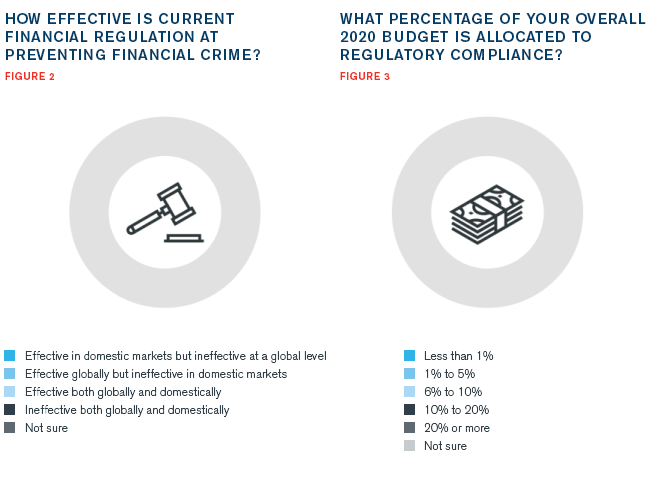
When forming a business, there are some very important steps to follow. These steps include tax reporting. Overhead, profit margin, and growth strategy. After you've completed these steps, your business is ready for you to start. You will need a business plan to ensure your business is profitable.
Tax reporting
There are several forms business contractors must fill out. Many of these forms have a different filing day. January 31 is the due date for Form 1096. This summarizes the information in a 1099-NEC. Other forms have different due dates, so it's important to check these dates carefully before creating your tax reporting calendar. For example, if you're an independent contractor, you must file Form 1099-NEC forms to each client you work for.
To avoid being penalized for failing to report these payments, business owners need to determine whether the workers are independent contractors or employees. There is no formula the IRS uses to identify whether workers are employees or contractors. The work performed must be considered a fundamental part of a small-business's business.
Overhead
Business contractors' overhead refers to the business operations costs. This includes direct costs related to projects or departments, such labor costs, equipment and machinery costs. Indirect costs include general office expenses, business insurance, and bookkeeping. In order to calculate the overhead total, they must all be taken into consideration.

After you have created the list, it's time for overhead calculations. It is best to use a standard period, such as a month. This will make the calculations more consistent. It is also important to know when overhead costs are due.
Margin of profit
CFI 2020 Contractor Survey surveyed contractors about their profit margins for last year. The results are encouraging, but more contractors didn't know or chose not to share their profitability figures. A greater number of contractors reported a profit margin of between 6 and 11 percent. If you're in the business of construction, you can improve your profit margin by focusing on adding value to your customers' projects.
Markup is another vital part of any business. It is essential for a contractor to know how much to markup for their services. Your overhead should be taken into consideration when setting your markup. A markup table can be a great tool to help you determine the markup that you should charge for your work.
Growth strategy
Your target market is an essential step in your journey to becoming a successful business contractor. As a general contractor, your target audience is the people who will make or break your business. To win their business and to get referral and repeat business, you need to build relationships. It is also important to identify potential opportunities.
You may believe that entering a new market or adding services will boost your revenue and market share. However, this approach is a risky proposition and should only be undertaken by larger companies that are already well established. If the company fails to succeed, it could be devastating.

Unemployment insurance
There are many states that offer unemployed insurance for contractors. As a service provider, you may be required to work on certain hours and locations and must follow certain guidelines. These guidelines may prevent you from being able to work, but you have the option to get unemployment insurance for business contractors.
Unemployment insurance can be costly. Employers should be looking into the Work Sharing program which allows them to reduce hours and still offer benefits. For businesses looking to avoid losing employees, Work sharing is a great option.
FAQ
How much do consultants make?
While some consultants make $100k+ per year, most consultants only earn between $25-$50k. The average salary for a consultant is $39,000. This includes hourly as well as salaried consultants.
Salary depends on industry, experience, location, and type of contract (contractor vs employee). Also, whether the consultant is located in their office or remote.
How is consulting different from freelancing
Freelancers can be self-employed people who provide their services to clients, without the involvement of employees. They generally charge an hourly rate depending on how long they spend on a client project. Consultants usually work for agencies or companies that employ them. Their salaries are often paid monthly, or annually.
Freelancers tend to have more flexibility than consultants because they control their work hours and set their own prices. However, consultants often have better benefits, such as health insurance, vacation days, sick leave, retirement plans, etc.
How can I be a successful consultant?
The first step is to find an area you are passionate about. Building relationships is the next step. Understanding your clients' needs and operating style is essential. Finally, you have to deliver results for your clients.
While you don't need to be the best at all things, it is important to be better than others. It is important to be passionate about what you do. It isn't enough just to say, "I'm going to be a consultant." You have to believe in yourself, and in what you are doing.
Who hires consultants
Many organizations hire consultants to assist with projects. These include small businesses, large companies, government agencies and non-profits.
Some consultants work directly for these organisations, while others freelance. The hiring process will vary depending on the complexity and size of the project.
There will be many rounds of interviews for consultants when you are looking to hire. Only then can you select the right person to fill the position.
Statistics
- On average, your program increases the sales team's performance by 33%. (consultingsuccess.com)
- So, if you help your clients increase their sales by 33%, then use a word like “revolution” instead of “increase.” (consultingsuccess.com)
- WHY choose me: Why your ideal client should choose you (ex: 10 years of experience and 6-week program has helped over 20 clients boost their sales by an average of 33% in 6 months). (consultingsuccess.com)
- Over 62% of consultants were dissatisfied with their former jobs before starting their consulting business. (consultingsuccess.com)
- My 10 years of experience and 6-step program have helped over 20 clients boost their sales by an average of 33% in 6 months. (consultingsuccess.com)
External Links
How To
How do I find a good Consultant?
Understanding your needs is the first step to finding the right consultant. Do you want them help improve your website's efficiency? Do you need them to optimize your site so that it ranks higher in search engines' results? Maybe you are looking for someone to point out any problems with your current web host. You should know the type of services that you require before you start looking at other companies. While there are many consultants that claim to be able provide these services for you, not all of them will. How do I choose one? Here are some things to consider when picking a consultant:
-
Get referrals. This is the best method to find a consultant. You don't want to hire someone you've never heard of before because you'll likely pay too much. You also don't want someone with a poor reputation to work for you. You're fortunate enough to receive referrals from people you trust. You can check online reviews even if they don't refer you. Seek out testimonials from satisfied clients.
-
Ask around. Many people are not aware of the benefits of hiring a consultant. Many people believe that they are doing well and don't need any changes. This is often false. Even if you are seeing great results, it is likely that you have not been keeping up to date with technology and trends. And if you're relying on outdated methods, you'll miss out on opportunities to grow your business. It's always worth asking for referrals to find good consultants.
-
Check their qualifications. No matter how small your project is, it's important to ensure that the consultant you choose has the necessary skills. You need to ensure that the person you hire is qualified to do the job and has sufficient knowledge in the subject.
-
Find out what kind of projects they specialize in. It is a common misconception that everyone can manage everything. You may need to have specific training or education in certain areas. A developer who is a specialist in Drupal would not be able to help you build a WordPress theme. The same applies to programming languages, graphic design and other areas. Be sure to ask what kinds of projects they typically work on.
-
Know what they charge. You don't want a consultant who charges too much. However, you don't need to pay too much. Consultants come in many sizes and shapes. Some bill hourly, while others are charged per project. It's cheaper to know upfront what you are paying than later.
-
Find out what they offer. Do they offer free consultations? Do they offer advice on setting up your system? Are they able to guarantee that your site will rank better after working with you? You have the right to cancel at any time if you aren't satisfied with what was said during your consultation.
-
Finally, find out if they offer discounts for multiple months or years. Many consultants offer discounted pricing for extended periods of time. Even though you do not necessarily have to commit to a whole year of service, you might still be able to benefit from any specials they offer.